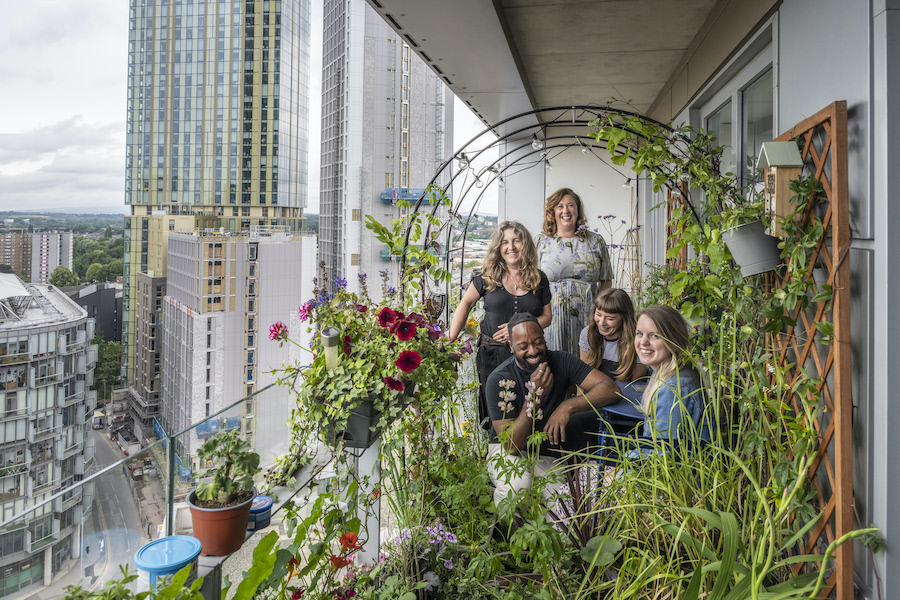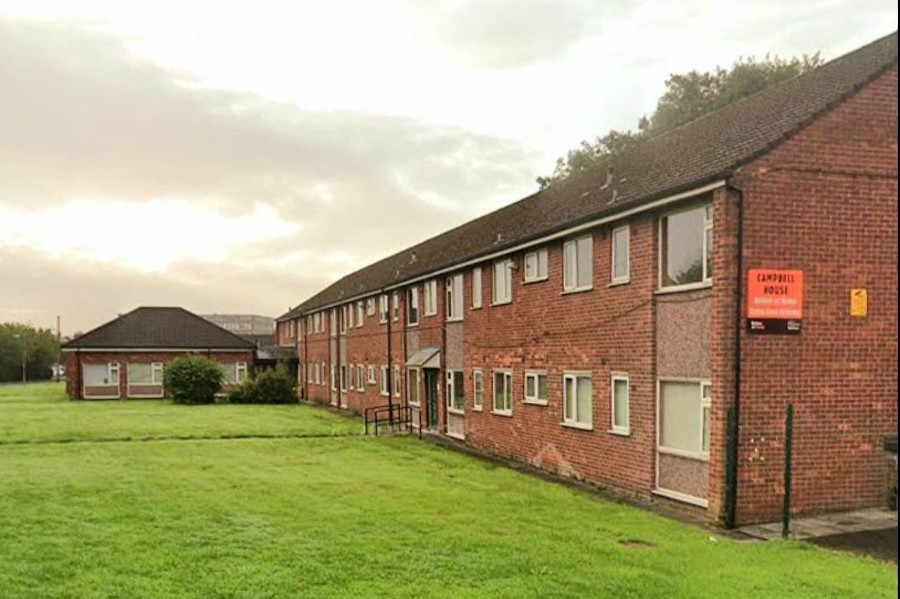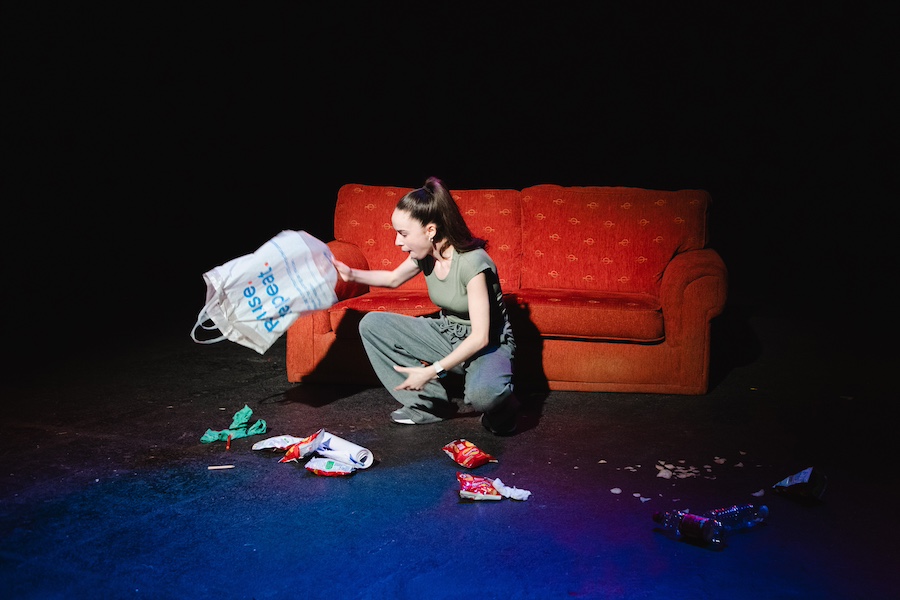Review: Vignettes at Contact is ‘powerful, necessary and empowering’
- Written by Thom Bamford
- Last updated 2 years ago
- Theatre
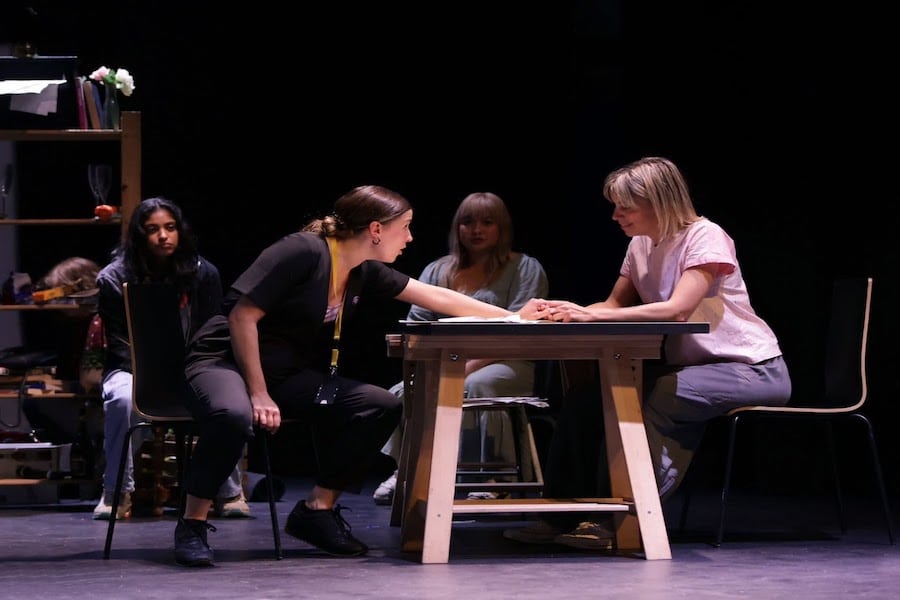
Through powerful short plays, it sheds light on societal attitudes and the resilience of survivors, delivering a poignant message of unity and change.
This emotional rollercoaster of performance offers a raw and unapologetic exploration of the repercussions of sexual violence, laying bare society’s illness and irreverence towards the devastating consequences faced by its victims.
“Vignettes” is an evening that pushes the boundaries of traditional theatre, taking the audience on a powerful journey through the decades, from the inception of the Manchester Rape Crisis Line in 1970 to the present day.
In the closing gambit of the play, a character says: “Rape scares people, rightly so, they hear the word, and don’t know how to act.
“But rape still happens.”
And this play explores the consequences.
Greater Manchester Rape Crisis
The heart of the play lies in its six powerful short plays, all authored by local female and non-binary writers.
It is a poignant tribute to the remarkable 45-year journey of the Greater Manchester Rape Crisis (GMRC), an organisation that has provided a sanctuary for survivors of abuse to be heard, supported, and believed in.
The first play, set in the 1970s, sets the tone for the night, brilliantly performed by Joyce Branagh and Ellie Campbell.
Their portrayal is the emotional core of the production, with newspaper headlines from each decade serving as poignant markers of social progress, or lack thereof.
A torch is shone on the gutter, misogynistic headlines of the day, and you take pause to think, how was that ever acceptable?
As the phone rings, the audience is transported into the heart-wrenching stories of survivors, presented in the form of short plays.
Play One – Bhaijaan
Zoe Iqbal’s “Bhaijaan,” delves into the intense relationship between a young woman of Asian descent and her brother, who learns of her harrowing experience at the hands of her husband.
Jessica Kaur and Alex Hewitt deliver performances that leave an indelible mark on the soul.
Not only touching on rape and sexual assault, this short kicks about cultural differences, misogyny (Jessicas Kaur isn’t allowed to become a nurse because of the skirts, but her brother is allowed to wear shorts when he plays football) and mental health.
This powerful portrayal cuts the audience to the quick, beginning with the two loving lives dancing to Barbie Girl, ending in a poignant moment of reflection on the consequences of a husband’s sexual violence towards his wife and a society that seems to gloss over it because society deems this acceptable.
Play Two – Burdens
Maz Hedgehog’s “Burdens” is a beautifully complex mother-daughter narrative, brought to life with astonishing physical acting by Kelise Gordon-Harrison and Krissi Bohn.
This short explores the incredible bond between mother and daughter, in the face of the daughter coming out with societal attitudes towards the LGBTQ+ community and an abusive father.
Kelise Gordon-Harrison and Krissi Bohn, performance is raw, and illuminating, showcasing their immense skill as performers.
Play Three – Lifelines
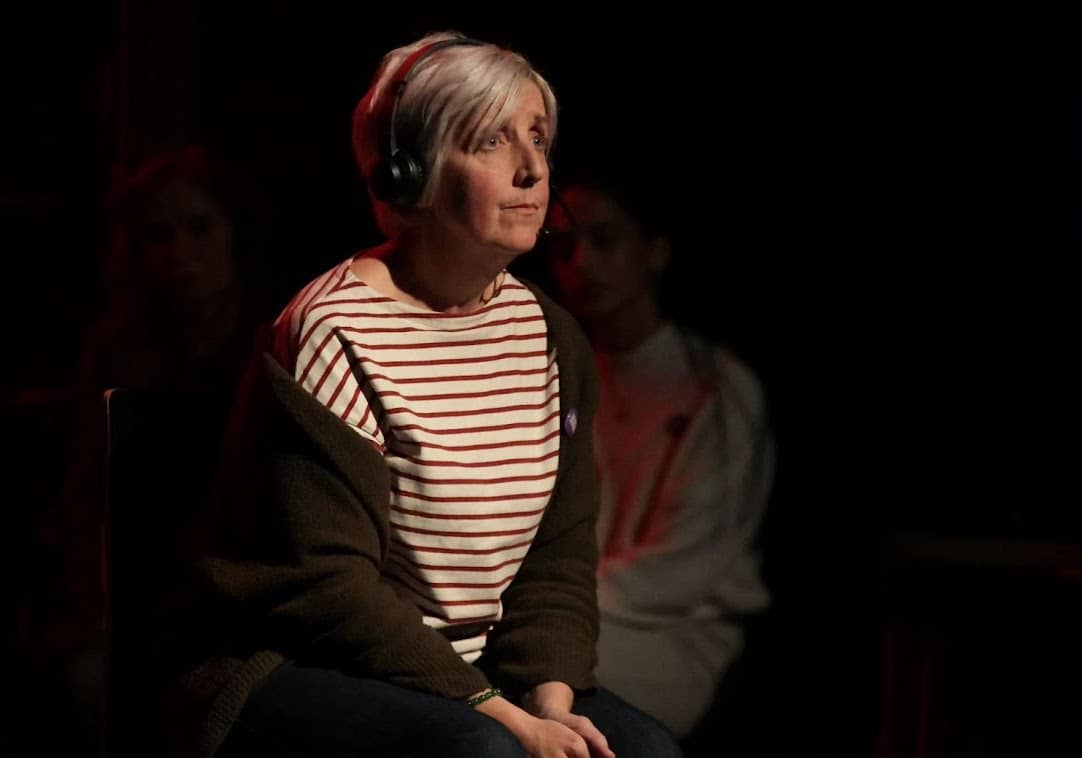
Julie Hesmondhalgh’s powerful performance in Debbie Oates’ “Lifelines” captures the audience’s attention as Yvonne grapples with anxiety while helping others overcome their trauma, delivering moments that are both humorous and deeply authentic.
Posting to social media, Julie said: “Obviously the subject matter is dark, but it’s also about joy, togetherness and hope”
She couldn’t be more correct, her towering performance gripping the audience as she guides another person through the same journey she went through.
Play Four – Broken
“Broken,” the powerful concluding act of “Vignettes,” directed by Lindsay Williams, presents a haunting narrative that couldn’t be more timely. In her Vignette, Williams sheds light on the critical role of Independent Sexual Violence Advocates (ISVA) in guiding women through the intricacies of the criminal justice system.
The play unveils the stark realities of a criminal justice system that often fails victims of sexual violence, exposing shockingly low conviction rates.
As Williams herself reflects, her journey in researching the play uncovered a profound depth of knowledge about the issue. She admits to being astounded by the revelations she encountered and expresses her deep admiration for the tireless work of ISVAs.
In the midst of this dark exploration, “Broken” stands as a testament to the resilience and strength of those who advocate for justice and support survivors through their most challenging moments.
Lois Mackie’s extraordinary performance is amplified by Ellie Rose’s masterful direction, creating an emotionally charged experience that leaves the audience both shaken and inspired.
The words “I’ll be back in the next day” take on a profound, resonating significance, echoing the urgent need for change and the unwavering determination of those who tirelessly fight for it.
Play Five – A Day In the Life
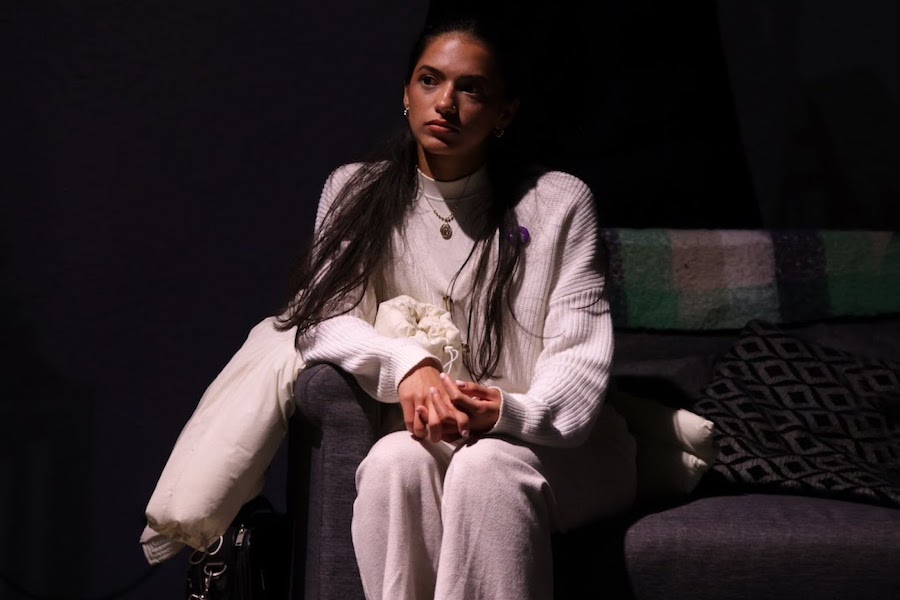
The night crescendos with A Day in The Life, directed by Ellie Rose a poignant reflection of the current struggles faced by those who provide crucial services to survivors of sexual abuse.
Lois Mackie’s extraordinary performance is both haunting and breathtaking, complemented by Ellie Rose’s direction, which adds elements of horror as the walls close in on someone teetering on the edge. The words “I’ll be back in the next day” take on profound meaning, evoking overwhelming emotions.
At the end of the play, one of GMRC’s staff, Anne Stebbings, who’s worked there for twenty years is revealed to the stage, and honestly, there wasn’t a dry eye in the room as the cast toasted the legacy of this legend.
Each story is immensely powerful, showcasing the awful, awful repercussions of sexual violence.
The tragedy is in the ubiquity of it.
But somehow, the end of the night is incredibly uplifting, with a sense of victims sticking together, refusing to be victims and working together to move forward.
It goes without saying, but what a wonderful credit to GMRC are – and how vital their work STILL is, 45 years on from their inception.
You can donate to their amazing work here
Also, according to the charity ‘Rape Crisis’, only 1 in 100 rapes were reported to the police in 2021 and resulted in a charge.
Just take a moment to let that sink in.
5 in 6 women who are raped don’t report it and the same is true for 4 in 5 men.
So for people to be brave enough to share their stories, they must be supported, societal attitudes must be confronted and things must change.
Let’s hope it gets another run.
- This article was last updated 2 years ago.
- It was first published on 6 October 2023 and is subject to be updated from time to time. Please refresh or return to see the latest version.
Did we miss something? Let us know: press@ilovemanchester.com
Want to be the first to receive all the latest news stories, what’s on and events from the heart of Manchester? Sign up here.
Manchester is a successful city, but many people suffer. I Love Manchester helps raise awareness and funds to help improve the lives and prospects of people across Greater Manchester – and we can’t do it without your help. So please support us with what you can so we can continue to spread the love. Thank you in advance!
An email you’ll love. Subscribe to our newsletter to get the latest news stories delivered direct to your inbox.
Got a story worth sharing?
What’s the story? We are all ears when it comes to positive news and inspiring stories. You can send story ideas to press@ilovemanchester.com
While we can’t guarantee to publish everything, we will always consider any enquiry or idea that promotes:
- Independent new openings
- Human interest
- Not-for-profit organisations
- Community Interest Companies (CiCs) and projects
- Charities and charitable initiatives
- Affordability and offers saving people over 20%
For anything else, don’t hesitate to get in touch with us about advertorials (from £350+VAT) and advertising opportunities: advertise@ilovemanchester.com

How a grassroots DJ collective is transforming Manchester’s music scene

Street parties and cathedral bells to mark the 80th anniversary of VE Day in Manchester

Churchill, Malala and Amy Winehouse come to life in this immersive MediaCity art exhibition









